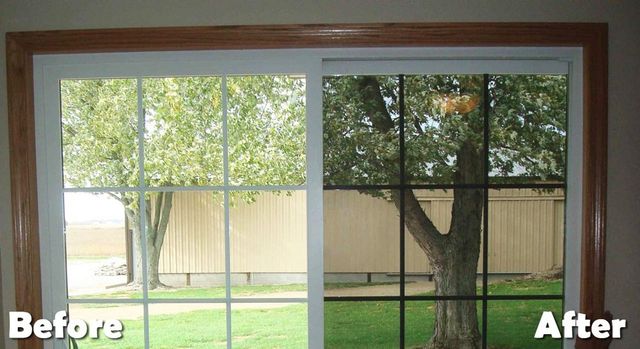How Residential Home Window Tinting Enhances Your Home's Power Effectiveness
Residential window tinting provides an engaging remedy for homeowners looking for to boost power efficiency within their living areas. By using specialized movies to windows, it successfully lowers warmth transfer, thereby stabilizing interior temperatures and reducing the requirement for extreme home heating or cooling.
Recognizing Home Window Tinting
Recognizing home window tinting is important for property owners looking for to enhance both comfort and power efficiency in their space. Residential Window Tint. Window tinting includes the application of a thin film to the interior or exterior surface of glass windows. This film can substantially modulate the amount of sunlight and heat that goes into a home, therefore influencing indoor climate problems
There are various sorts of window tinting movies readily available, each with distinctive homes. Colored movies take in solar energy, while reflective films disperse it away from the glass surface area. Ceramic films provide a balance of visibility and heat being rejected, making them a popular choice amongst home owners. The performance of home window tinting is usually gauged by its Visible Light Transmission (VLT) portion, which indicates just how much light can pass with the movie.
Benefits of Power Performance
Home window tinting not only boosts aesthetics yet likewise plays a considerable role in improving energy performance within property spaces. By lowering warm transfer via windows, colored films create an extra stable interior environment, which can result in substantial decreases in energy usage for cooling and heating. This power performance translates into reduced energy expenses, offering house owners with considerable lasting savings.

Furthermore, window tinting improves the comfort of living rooms. By lessening glare and obstructing damaging UV rays, tinted windows develop a more pleasant setting, which can result in improved health for passengers. The protection versus UV rays likewise helps preserve furnishings and flooring from fading, adding to the longevity of house items.
Just How Tinting Works
Tinting movies operate via a combination of innovative products and technologies made to manage the quantity of solar power entering a home. Mostly composed of polyester, these movies typically incorporate metallic or ceramic fragments that take in and show warmth. This dual capacity allows them to dramatically reduce the infiltration of ultraviolet (UV) rays and infrared radiation while allowing visible light to travel through.
The effectiveness of window tinting is measured by its solar warm gain coefficient (SHGC), which indicates just how much solar power is transmitted with the window. Reduced SHGC worths are more suitable as they represent greater heat denial. Furthermore, home window colors can feature a range of tones, allowing home owners to customize their visual preferences while improving power performance.
Furthermore, these films function as an obstacle, preventing heat loss throughout colder months by reflecting interior warmth back navigate here into the space. This thermal insulation impact matches the air conditioning advantages obtained during warmer months, adding to a well balanced interior environment year-round. By managing solar power successfully, domestic home window tinting not just boosts convenience yet additionally plays a crucial duty in lowering power intake and decreasing energy bills.
Choosing the Right Tint

There are numerous types of home window films readily available, including colored, metalized, and ceramic. Ceramic films supply excellent warmth control without endangering exposure and are highly resilient, making them a prominent choice.
Visible light transmission (VLT) is an additional important variable, as it shows the quantity of all-natural light that can pass through the tinted glass. Property owners ought to choose a tint with a VLT that matches their illumination choices while still giving ample glow decrease.
Furthermore, evaluating the solar warm gain coefficient (SHGC) can aid establish just how well a color can block heat from sunshine. A lower SHGC suggests better heat control, ultimately boosting power performance.
Setup and Maintenance Tips
Proper installation and upkeep are vital elements in taking full advantage of the benefits of property home window tinting. Specialists likewise make use of specialized tools and methods, which can improve the sturdiness and performance of the tint.
Complying with setup, maintenance is essential to prolong the life of More about the author the window film. It is suggested to wait a minimum of one month prior to cleansing the tinted windows to enable the glue to cure fully. When cleansing, use a soft fabric and a mild, ammonia-free cleaner to stay clear of damaging the film. Prevent unpleasant products that could scrape the surface area.
Furthermore, routine evaluations are helpful. Look for any type of peeling or bubbling, which can suggest inappropriate installment or put on in time - Residential Window Tint. Resolving these concerns without delay can protect against more damages and keep energy performance. By adhering to these setup and upkeep ideas, home owners can guarantee their window tinting continues to offer considerable energy savings and convenience for years ahead.
Final Thought
In final thought, residential window tinting offers as an effective solution for boosting energy effectiveness within homes. By reducing warm transfer and obstructing hazardous UV rays, home window films add to decrease energy usage and boosted indoor comfort.
Home window tinting involves the application of a thin movie to the inside or exterior surface of glass windows. By minimizing warmth transfer through windows, tinted movies develop a much more secure interior climate, which can lead to considerable reductions in power intake for heating and cooling.The efficiency More Help of window tinting is gauged by its solar warm gain coefficient (SHGC), which suggests exactly how much solar power is transferred via the home window. By taking care of solar energy successfully, household home window tinting not only enhances convenience yet additionally plays a crucial function in reducing energy usage and reducing energy bills.
By decreasing warmth transfer and blocking dangerous UV rays, home window movies contribute to reduce energy usage and improved indoor convenience.